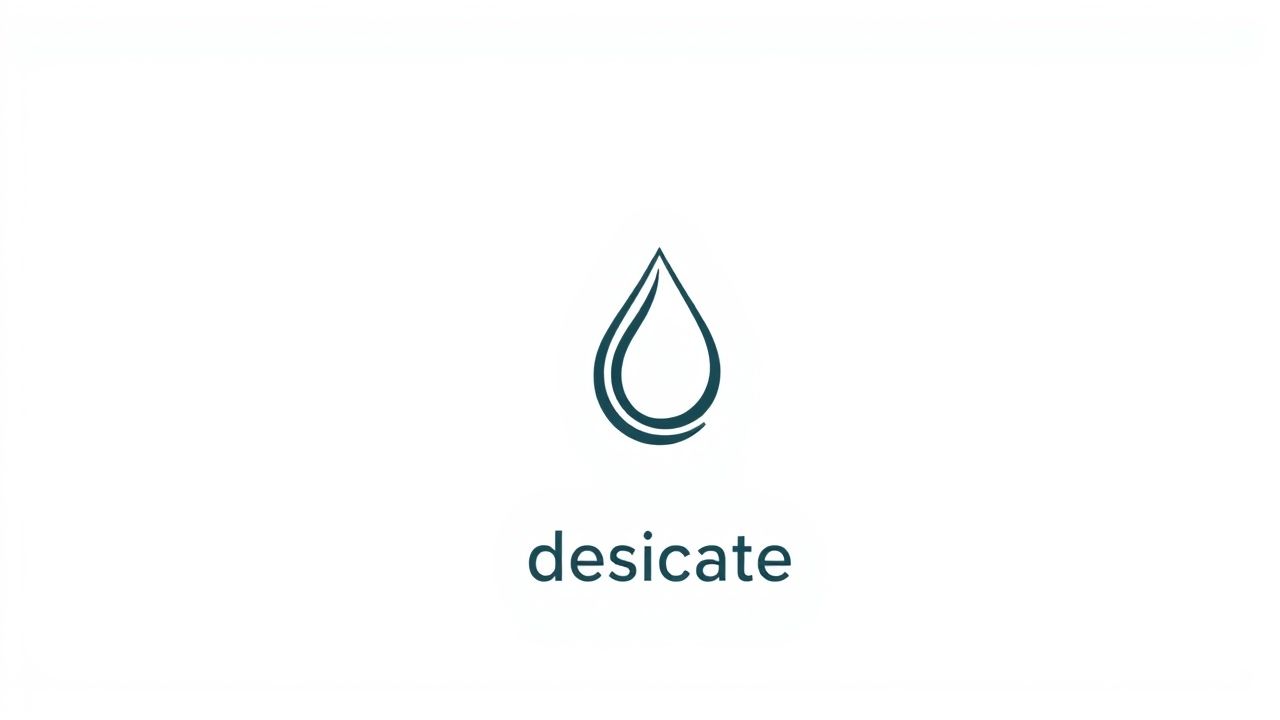The word ‘desiccate’ refers to the process of removing moisture from something, typically to preserve it or make it dry. This term is commonly used in contexts such as food preservation, drying plants, or scientific procedures where dehydration is necessary. Understanding the antonyms of ‘desiccate’ is important for expanding vocabulary and clearly communicating the opposite meaning adding moisture or preventing dryness. In this topic, we will explore the antonyms of ‘desiccate,’ their meanings, and how they are used in everyday language. This will help readers grasp the concept fully and improve their language skills.
Understanding the Meaning of Desiccate
To ‘desiccate’ means to thoroughly dry out or remove the moisture from an object or substance. The word originates from the Latin ‘desiccare,’ meaning ‘to dry up.’ It is widely used in various fields, including cooking, where dried fruits or vegetables are desiccated for preservation. It also appears in scientific contexts, such as preparing chemical samples or biological specimens.
When something is desiccated, it becomes dry, brittle, or dehydrated. For example, desiccated coconut is shredded coconut that has been dried to remove moisture. In the environment, a desiccated landscape might describe a dry, barren place with little water.
Common Contexts for Using Desiccate
- Food industry: drying fruits, vegetables, or meats to extend shelf life.
- Scientific labs: drying samples to analyze them properly.
- Environmental descriptions: describing dry or arid climates.
- Metaphorical usage: referring to something drained of vitality or emotion.
Antonyms of Desiccate and Their Meanings
The direct antonyms of ‘desiccate’ convey the opposite idea: to add moisture, to moisten, or to keep something from drying out. These words emphasize hydration, freshness, or retention of water. Below are several antonyms with explanations:
Moisten
‘Moisten’ means to make something slightly wet or damp. It is the most straightforward antonym of desiccate, focusing on the addition of moisture. For example, Please moisten the soil before planting the seeds.
Hydrate
‘Hydrate’ is often used in scientific or health-related contexts, meaning to supply water or fluids to something. It is commonly used to describe the process of replenishing water in living organisms or substances. For example, Athletes need to hydrate during intense workouts.
Dampen
‘Dampen’ means to make something slightly wet or moist but not soaked. It is often used when a small amount of moisture is required. For example, Dampen the cloth before wiping the surface.
Wet
‘Wet’ is a simple term meaning covered or saturated with water or another liquid. While ‘desiccate’ means to dry completely, ‘wet’ indicates the presence of moisture. For example, The ground was wet after the rain.
Soak
‘Soak’ means to immerse something in liquid for an extended period, usually to saturate it fully. This is an extreme form of moistening, often opposite to drying out. For example, Soak the beans overnight to soften them.
Humidify
‘Humidify’ means to increase the humidity or moisture content in the air or environment. It is commonly used in contexts involving air conditioning or climate control. For example, The machine helps humidify the dry indoor air during winter.
Examples of Using Antonyms for Desiccate in Sentences
Here are examples illustrating the use of ‘desiccate’ and its antonyms to better understand their differences and applications:
- The heat from the sun will desiccate the leaves, turning them brown and brittle.
- Remember to moisten the soil before planting to help the seeds grow.
- After a long run, it’s essential to hydrate your body with plenty of water.
- The chef instructed us to dampen the cake layers slightly to keep them moist.
- The forest was desiccated by the drought, with no signs of green vegetation left.
- Using a humidifier can help humidify the air and prevent dry skin in winter.
- She soaked the fabric in water to remove the stubborn stains.
Why Knowing Antonyms of Desiccate Matters
Enhances Vocabulary
Understanding the antonyms of ‘desiccate’ broadens vocabulary, allowing for more precise and varied expression. Whether writing or speaking, having access to words like moisten, hydrate, or dampen helps describe situations involving moisture more accurately.
Improves Communication Clarity
When you know the antonyms of ‘desiccate,’ you can clearly explain the opposite condition, making your communication more effective. For example, instead of just saying ‘the soil is dry,’ you can say ‘the soil needs to be moistened,’ which is more actionable and specific.
Useful Across Different Contexts
The concept of moisture or dryness appears in many fields such as agriculture, cooking, health, and environmental science. Knowing the antonyms of ‘desiccate’ is helpful for professionals and students working in these areas, enabling them to communicate technical details precisely.
Additional Related Terms and Phrases
Besides the primary antonyms listed above, there are other related words and phrases associated with moisture and drying processes:
- Rehydrate: to restore moisture to something that has been dried out.
- Moisturize: often used in skincare, meaning to add moisture to the skin.
- Dewy: describing something that is fresh and slightly wet with moisture.
- Succulent: refers to plants or food that retain moisture.
- Parched: an adjective meaning extremely dry, often used in contrast to moist.
The antonyms of ‘desiccate’ focus on the addition or retention of moisture, contrasting with the idea of drying out or dehydration. Words like moisten, hydrate, dampen, wet, soak, and humidify serve as direct opposites, each with unique nuances suitable for different contexts. Understanding these antonyms enriches vocabulary and communication skills, making it easier to describe conditions involving moisture accurately.
Whether in everyday conversation, scientific discussions, or creative writing, knowing how to use these antonyms properly enhances clarity and expression. So, next time you encounter the word ‘desiccate,’ you’ll be well-equipped to describe its opposite effectively and with confidence.
